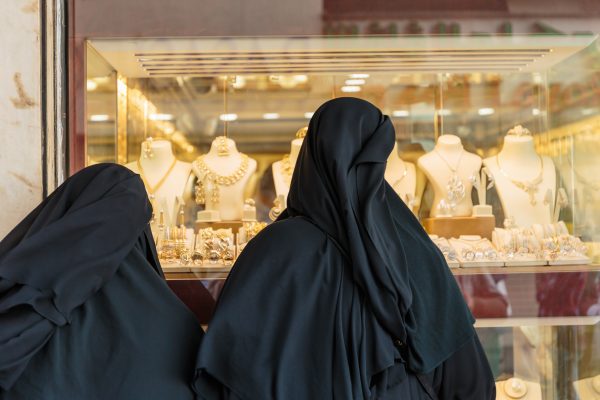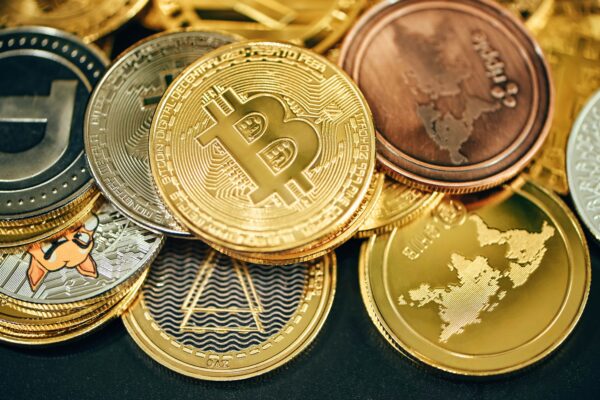How does riba affect society – and what does the Quran say about it?
How does riba affect society – and what does the Quran say about it?
The Quran says: “Those who live on usury will not be able to stand (on the Day of Judgment), but like the one whom Satan has made insane with his touch (i.e., damnation). This is because they used to say that trade (i.e., buying and selling) is similar to usury, whereas Allah has declared trade (i.e., buying and selling) lawful and usury unlawful. So, if someone refrains (from usury) on receiving admonition from his Lord, then he can keep whatever he took in the past and his case is with Allah. But those who continued with usury (despite the admonition) would be the inmates of Hell. They will abide there permanently”. (Quran 2:275).
The Prophet (peace be upon him) said: “Usury is a major sin, and it is a source of trouble for the one who engages in it”. (Al-Bukhari, Sahih al-Bukhari, Vol. 3, Book 34, Hadith 2835)
Pakistan’s economy has been increasingly dominated by high interest rates (Riba) on term deposits, a trend that has had severe consequences for small businesses and overall employment.
The country’s banking system has been affected by economic challenges and inflationary pressures, like the State Bank of Pakistan, influenced by IMF recommendations, and has raised interest rates to nearly 20.5% over the years. This shift has not only stifled economic growth but also deepened financial instability, leading to a widening gap between the wealthy and less fortunate.
In Islamic Law, Riba refers to any predetermined interest, such as the markup earned on fixed bank deposits, which is considered exploitative and unjust. The prohibition of Riba is emphasized in the Quran and Hadith due to its harmful effects on individuals and society.
The Quran explicitly states: “O you who believe! Be afraid of Allah and give up what remains (due to you) from Riba (interest)” (Al-Quran 2:278), urging believers to abandon interest-based earnings. Furthermore, the Prophet Muhammad (صلى الله عليه وسلم (strongly condemned usury, as evidenced by the Hadith: “The one who takes interests will not enter Paradise, and the one who pays interests will not enter Paradise.” (Sahih Muslim, Vol. 3, Book 15, Hadith 3854).
These teachings underscore the serious ethical and moral implications of engaging in transactions where money is earned without productive effort, highlighting the importance of fairness and justice in economic dealings.
Historical data on interest rates in Pakistan’s banking system reveals a fluctuating trend over the decades. For instance, in the 2010, the interest rates hovered around 14%, offering relatively stable environments for investments. At that time, individuals with substantial savings were more inclined to invest in market to circulate their money – we can say a shop owner with two successful outlets might have invested a 1 crore rupee in opening a third, expecting a monthly profit of 80,000 Rs. Similarly, a property investment of the same amount could generate a rental income of 70,000 Rs/ month. Such investments not only fueled business expansion but also created jobs, directly benefiting the broader economy.
However, by 2024, the situation had drastically changed. The State Bank of Pakistan had increased the interest rates on fixed deposits to approximately 20.5 %. This dramatic rise made it far more appealing for investors to secure their funds in term deposits rather than risking them in business ventures.
Consequently, capital that was once actively circulating in the market, generating employment and supporting business growth, is now sitting idle in bank accounts, accruing interest. This shift has led to a dangerous trend where the potential for economic development is stifled, as funds that could have been used to foster growth are locked away, leading to fewer opportunities for job creation and a sluggish economy.
The allure of high returns from fixed deposits, even under the guise of “Islamic Banking”, has led many investors to prioritize personal gain over the collective good. While these individuals enjoy a steady income with minimal efforts, the broader economy suffers.
The slowdown in investment impacts not only the business and real estate sectors but also related industries such as construction, manufacturing, and services, further contributing to economic stagnation. The reduced demand for these materials due to decreased real estate activity creates a ripple effect, leading to lower production and sales in these industries, further contributing to the economic slowdown.
This scenario vividly illustrates why the practice of charging or receiving interest is forbidden in Islam. The Quran explicitly warns against consuming interest “O you who have believed, do not consume usury, doubled and multiplied, but fear Allah that you may be successful.” (Quran 3:130).
This prohibition is not only a moral stance but also an economic safeguard designed to prevent the hoarding of wealth and the exploitation of others. When money is locked away in banks earning interest, it ceases to be a tool for economic development. Instead of funding new businesses or expanding existing ones, these funds contribute to a cycle of wealth concentration, where only a few benefit at the expense of the many.
This concentration of wealth not only stifles entrepreneurial spirit but also limits job creation, leading to higher unemployment and greater economic disparity.
To address these challenges, Pakistan must critically re-evaluate its banking practices and consider a shift towards an interest free economic model. Such a system, rooted in Islamic principles, would encourage the circulation of wealth in productive investments rather than allowing it to accumulate unproductively in banks.
The transition to a Riba-free banking system is not just a financial adjustment but a profound economic reform that could unlock new opportunities for growth and stability. By aligning with ethical financial practices, policymakers, and financial institutions, individual investors can work together to build a more inclusive economy — one that supports business expansion, create jobs and ensures a more equitable distribution of wealth.
The time to act is now. We must advocate for a banking system that reflects our values and foster long term economic prosperity. Let us embrace a future free from destructive influence of Riba and work towards a brighter, more just economic landscape of Pakistan.





